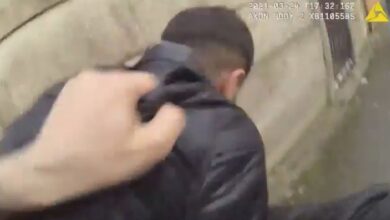By Marshall A. Latimore and Miana Massey
Chris Williams II is a young entrepreneur and a recently sought after business guru hailing from Chicago’s South Side.
After Williams discharged from the Army National Guard and finished a program at the Phoenix-based Automotive Dealership Institute in January 2018, he found himself homeless and jobless at the age of 25. Determined to figure life out on his own, he didn’t let being homeless deter him from pursuing his goals.
Williams said he opted out of returning to the comfort of his parents’ home in Chicago to figure life out on his own. While holding true to that personal commitment, things became incredibly tough for Wiliams financially to the extent of sleeping in his rental car, taking showers in local gyms and washing clothes via the cleaners.
Even though this was his circumstance, Williams said he would still read books and study in his car at night. Eventually, Williams’ sacrifices paid off—as now, a year later, he is poised to be one of the youngest black Subway franchisees in the country. He is still a few weeks away from announcing his store location here in Metro Atlanta, but he’s gone through franchisee training and is excited to share his store with the world.
In between speaking on a few panels during this year’s Essence Music Festival in New Orleans to traveling to Subway’s international headquarters, Williams sat down with The Atlanta Voice to share his story.
The Atlanta Voice: What can you share with us about your background?
Williams: I’m from the south side of Chicago where I grew up with an amazing family. We weren’t the poorest family, but we also weren’t the richest at all. We grew up in Inglewood, which was probably one of the roughest—if not the roughest area—on the South Side. I grew up in the same neighborhood that Derek Rose, Anthony Davis, and Jabari Parker were from. We were surrounded by gang violence, drugs, poverty, all of the above.
I got to a point in 2017 where I decided that I didn’t want to have that be my reality anymore and I wanted to get out and help other people get out in the only way for me to do that was to take a risk. So I sold my car and I ended up moving to Phoenix, Arizona for finance school. I got through finance school. After I finished, I literally traveled across the nation applying for jobs.
I ended up getting hired in south Florida to work as a finance manager.
By the time I started in this role, I’d run out of my reserve, so I only had enough money to pay for, uh, either a rental car or apartment. So I decided that I needed to get around within south Florida. It’s pretty long, the state of Florida. So I chose to get a car. I got the rental car and I figured that I would use my commission money to pay for an apartment. Well, I didn’t make a commission at all for a few months. So I ended up going from one month in the car to two months to, uh, three a total. So it was brutal. It was tough. Uh, you, if you know anything about South Florida is very humid and hot.
The Atlanta Voice: What was it like to experience homelessness in Atlanta?
Williams: At night I would try to let the windows down and I remember many nights waking up having to roll the windows up because it was raining in Florida. Yeah. I remember sleeping in the parking lot at Walmart and trying to find somewhere to sleep near lighting so that I would be safe while I was sleeping. And I remember the security guards knocking on the window and saying, “Hey, you can’t sleep here. No overnight parking.”
And I would just cry like this. It was, it was a rough period. It’s cute now, looking back at things; but, at the time, it was, it was brutal. I would just want it to get out of the car. Long story short, I ended up getting a job offer. I’m now making six figures in Atlanta since last June. So I moved here, took the job offer so that I printed out the car and I’m in the process.
I would study, even while I was sleeping in the car—even the was repossessed and moving and stuff, I would still study business concepts. I would look up a Harvard Harvard’s syllabus and I would buy books that were taught at Harvard University and I would teach myself, no self teach myself or those concepts, told myself, accounting, things like that in the process of me trying to build my reserve to try to become an entrepreneur. Okay. In the process of doing that the opportunity presented itself for me to be able to apply to become a subway franchise owner.
The Atlanta Voice: So how does one become a franchise owner? Or, rather, how did you actually obtain that franchise?
Williams: So each franchise has a certain process in a certain structure that someone has to go through in order to become what they call a “franchisee.” The “franchisor” is the individual who provides the opportunity for you to become a franchisee. So, the franchisee is the individual who basically has received permission from the franchisor to license their name, their products, their designs in their store for a profit. And what happens is during that process, the franchisor receives a percentage of those profits, which are called royalties.
The process ended up being highly detailed. They want to scrutinize the potential franchisee’s finances. They want to know what’s going on with your finance. How is that? They look at the franchisee’s background, to make sure you know, um, you are, you don’t want an integral person and doesn’t necessarily mean that a person who has a felony or misdemeanor may be disqualified, but it’s ultimately up to that particular franchise or who they are applying with.
There’s usually an orientation to introduce the franchisee to the history of the company—their perspectives, their brand, and their policies—whatever company the franchisee applies with. From there on, you will likely be sent to the franchise’s headquarters. They determine whether they feel like the franchisee is a good fit for their brand, basically.
I wanted to own a Subway for the last few years. I felt like it had a strong brand and a strong name — it had stood the test of time. So I felt like because of that, owning a Subway was something that I wanted to be a part of because I felt like with my perspectives as a young millennial, I could also help them as well.
The Atlanta Voice: So tell us a little more about becoming one of the first black Subway franchise owners.
Williams: As it pertains to that, it’s been crazy. So, initially, to be perfectly honest with you, I posted the picture of me signing the documents with the owner prematurely and I almost I got myself in deep trouble because we hadn’t closed the deal yet. So, the photo went viral and there were like four or five million people that saw the post but, I shouldn’t have posted it. So it was a lesson. Ultimately, I had to make amends for that.
But outside of that, you can’t stop a store if you’re going by ruins. People who’ve seen your face, they’ve seen it. So, yeah, it’s been amazing the reception and stuff that I’ve received from just going through the process; it’s been amazing and I’ve enjoyed every minute of it. Just seeing the people that have been inspired.
I’ve had people from Europe send me pictures of their application for their brand and they’re like, “Hey, we are applying to own a Subway because you’re doing it, you did it.” I’ve had people from the islands like, “Hey, I’m about to buy my first subway now.” You know, people have hit me up like, “Hey, we were homeless and we didn’t think any of that was possible and now you’ve made that possible for us. Now we’re getting ready to pursue, you know, entrepreneurship.”
So, these conversations have happened. And it has inspired me. For me, I want to be the type of person who not only gets through an open door but also holds the door open for others to walk through.
And there’s not a lot of that, particularly within the black community when someone becomes successful. When black people become successful, they brag on everything they have and they showcase it. But they don’t show others how to succeed as they did.
So that’s one of the things that I want to do differently. I want to show others how I have succeeded, which is why I’m also launching a series of e-courses to teach others about entrepreneurship and how they can attain it for themselves.
The Atlanta Voice: What advice do you have for other young people interested in entrepreneurship?
Williams: I was filming this weekend and one of the things that I actually mentioned in the film was that in order for a person to take or start a business, they have to take a risk. Risk is associated with business and entrepreneurship 100 percent of the time.
There’s not one time that you won’t start something that you won’t be taking risks; risks, if calculated, correctly can be minimized. But you cannot be afraid of risks. But this is what I said exactly. I said, “As it pertains to risks, on the other side of it is the reward.”
So on the other side of risks and sacrifice is the reward. If I sacrifice today and I sleep in the car today, I’ll wait and work hard for a commission check, so I can keep saving my money to purchase a store.
And on the other side of me doing this is the opportunity for me to become an entrepreneur. And this is just an example, even my story.
The Atlanta Voice: So, is it better to take more risk now rather than later?
Williams: One of the things that I wanted for myself was that I didn’t want to retire old. A lot of times the, we have been painted this American Dream that basically states, “Hey, I’ll get a high school diploma and if you get a high school diploma, you qualify for this amount of money. And then if you get a college degree, you will qualify for this amount of money. If you get a master’s degree, you qualify for that amount of money.”
In reality, they basically are conditioning us to be employees for the rest of our life. I have friends that graduated college recently and they now have tons of student debt, but they’re delivering sodas for Pepsi even though that’s not what they went to school for. So, for me, one of the things that I understand is that in order for me to end, it goes back to what I said before.
In order for us as young millennials to be able to break the mold that has been set for us by society, we have to start investing young. I also had another venture where I raised a lot of money from investors and the majority of them were millennials.
There are plenty of studies that allege that millennials are broke or that they don’t have enough savings. But there are millennials who are actually investing in stuff — they’re buying properties, they’re buying houses, they’re buying rental properties, they’re buying franchises. So, um, one of the things that I would still, someone is to start young.
The Atlanta Voice: What is some advice on how more people of color can get access to the resources they need to start businesses?
Williams: I would say one is to surround yourself around individuals who are doing what it is that you want to do. If I know individuals who, and it doesn’t matter, they could be young, they can be old, doesn’t matter the age group, what you want to get you around someone who is doing what you’re doing on a greater scale or what you want to do on a greater scale.
You’ve got to surround yourself around individuals who are doing what you’re doing or, or better. And then also you want to read books, you want to study, you want to take courses, you want to do whatever it takes to prepare yourself for your next step. It has been proven that going to college is not the only way to prepare for entrepreneurship.
The Atlanta Voice: So what’s next for you? What else are you involved in right now?
Williams: I have a few things that are coming up in the works. But right now, of course, we’re getting ready to announce the actual grand reopening of the Subway store I am franchising. So we’re gonna do a special announcement sharing the location and more details in the coming weeks.
Then, there’s also the e-course that I’ve launched that is going to teach individuals how to raise capital and understanding the proven steps and the methods to be able to do that.
This article originally appeared in The Atlanta Voice.





